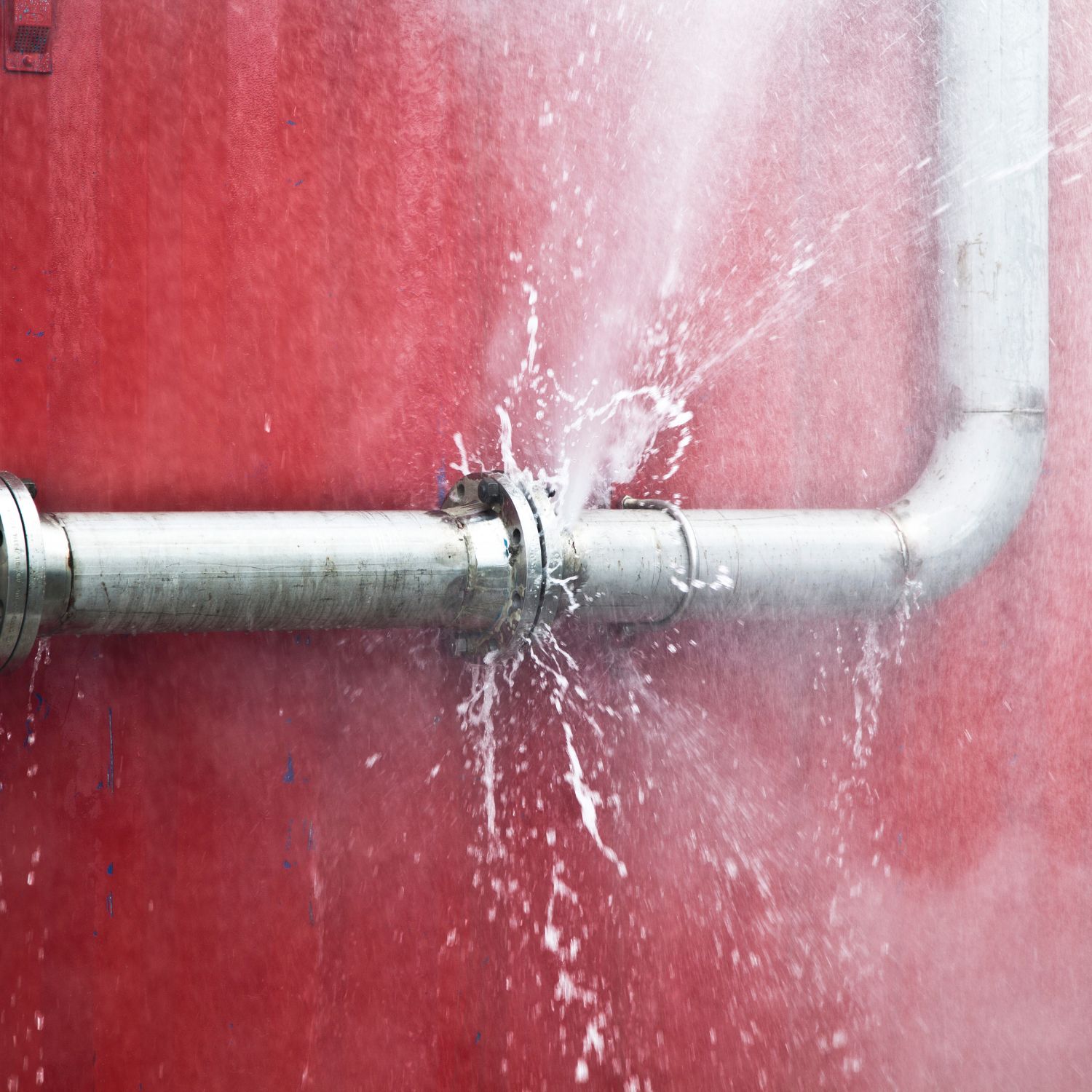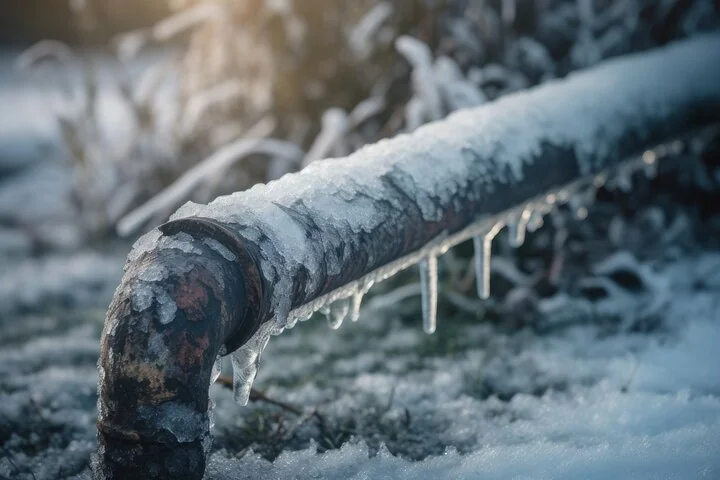What to Do When a Burst Pipe Causes Water Damage in Your Home
What to Do When a Burst Pipe Causes Water Damage in Your Home
Blog Article
Stopping Burst Piping: Necessary Tips to Secure Your Pipes
Stopping ruptured pipelines is an essential issue for house owners, particularly throughout colder months when the risk of cold is enhanced. Carrying out critical steps such as proper insulation, regular examinations, and keeping regular indoor temperature levels can significantly reduce the likelihood of pipeline failure.
Understand Pipeline Vulnerabilities
Recognizing pipe vulnerabilities is essential for reliable plumbing maintenance and avoiding costly damages. Several factors contribute to the vulnerability of pipelines to bursts, including material composition, age, and environmental problems. Older pipes, particularly those made from galvanized steel or polybutylene, usually break down over time, causing increased danger of ruptures and leaks.
Temperature level fluctuations can additionally substantially influence pipeline integrity. In colder environments, water trapped in pipelines can ice up, broadening and applying pressure on the pipe wall surfaces, which may inevitably bring about a burst. High water stress can strain pipes, especially at bends and joints, heightening the chance of failure.

Insulate Water Lines Effectively
Proper insulation of pipelines is essential for stopping cold and succeeding bursts during winter (burst pipe). Insulating your plumbing system effectively safeguards versus temperature level goes down that can bring about pricey damages. Begin by recognizing at risk locations where pipelines are subjected to outdoor temperatures, such as basements, attics, and exterior walls
Use foam pipeline insulation sleeves or cover insulation tape around these areas to supply a protective barrier. Make sure that all areas of the pipes, particularly those with limited warmth direct exposure, get appropriate insulation. Pay special attention to joints and fittings, as these are much more susceptible to cold.
When shielding, it's important to select products that satisfy local building ordinance and are appropriate for the particular environment. As an example, fiberglass insulation is commonly suggested for its thermal resistance buildings - burst pipe. In addition, take into consideration utilizing heat wires or tape in extreme problems, which can be plugged in to give extra warm
Frequently examine insulated pipelines for any indications of wear or damage, as compromised insulation can decrease its performance. By taking these proactive procedures, you substantially decrease the danger of pipe ruptureds, guaranteeing a trusted plumbing system throughout the winter season.
Maintain Consistent Temperature
A stable indoor temperature is crucial for stopping ruptured pipelines throughout the frigid months. When temperatures decrease, water within pipes can ice up, broadening and developing pressure that may ultimately trigger the pipelines to ruptured. like this To mitigate this risk, property owners must preserve a regular temperature level throughout their home, preferably no lower than 55 ° F(13 ° C)Using a programmable thermostat can assist handle indoor temperatures successfully, making sure that spaces with pipes remain warm also when your home is unoccupied. Pay unique focus to areas that are much more vulnerable to cold, such as basements, garages, and attics. Maintaining cabinet doors open under sinks can likewise enable warmer air from the home to flow around pipes.
This minor flow of water can stop cold by easing stress within the pipes. By implementing these strategies, house owners can dramatically reduce the risk of pipe ruptureds and guard their plumbing systems versus the harsh winter months elements.
On A Regular Basis Examine Plumbing
Normal examinations of pipes systems are crucial for avoiding burst pipes and keeping general home stability. During these evaluations, it is important to take a look at visible pipes for indications of rust, leaks, or put on.
Furthermore, checking joints about his and links is important, as these factors are usually susceptible to leakages. Property owners need to also assess water pressure levels, as excessive stress can strain the pipes system and boost the risk of pipeline ruptureds.
Consider organizing specialist plumbing inspections a minimum of as soon as a year, especially before winter months, to ensure your system is prepared for chillier temperatures. Routine inspections not only aid in recognizing instant issues yet also foster lasting maintenance strategies that can enhance the life expectancy of your plumbing system. By being aggressive in your strategy, you can safeguard your home against the turbulent and costly repercussions of burst pipes. Prioritizing plumbing examinations is a financial investment in your home's health and wellness.
Know Emergency Procedures
Understanding emergency procedures is vital for every home owner, especially after carrying out normal plumbing evaluations. Visit Your URL Being prepared for a plumbing emergency can substantially mitigate damages and save costs.
Next, keep crucial devices helpful. A plumbing emergency package should consist of a wrench, plunger, and towels, in addition to a flashlight and a bucket for tiny leakages. Furthermore, consider having the call details for a trusted plumbing conveniently offered, should the situation intensify past your control.
If you discover a leakage or ruptured pipe, instantly switch off the water supply and inform your plumbing technician. Furthermore, document the damages with photos for insurance policy purposes. burst pipe. Recognize the indications of potential plumbing concerns, such as uncommon water stress changes or damp spots on wall surfaces
Eventually, positive expertise and speedy action are vital in managing pipes emergency situations, guaranteeing your home continues to be protected and minimizing prospective damages.

Verdict
Finally, preventing ruptured pipelines demands a diverse method that consists of understanding pipeline vulnerabilities, appropriate insulation, maintaining regular interior temperature levels, regular examinations, and understanding of emergency procedures. By executing these important methods, the threat of pipes failures can be substantially decreased, thus making certain the long life and performance of the pipes system. Proactive steps not only safeguard versus possible damages yet additionally contribute to overall water conservation and the security of residential property.
In chillier climates, water caught in pipelines can freeze, expanding and applying stress on the pipe walls, which may ultimately lead to a burst. When temperature levels decline, water within pipes can ice up, producing and increasing stress that might ultimately cause the pipelines to burst. By applying these methods, house owners can dramatically reduce the risk of pipeline bursts and guard their plumbing systems against the extreme winter components.

Report this page